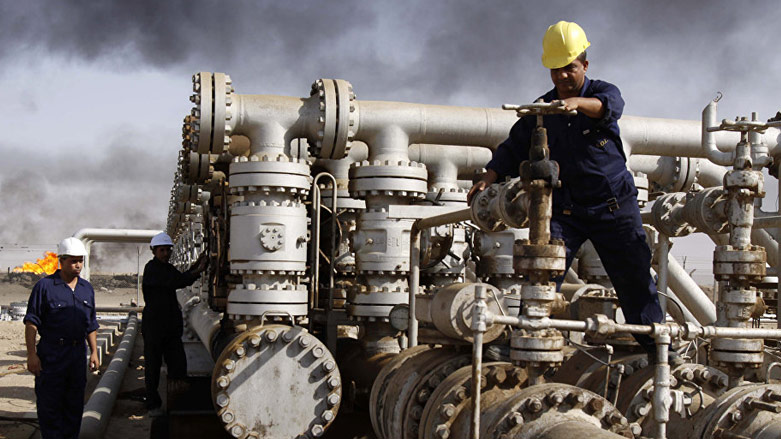BP, Iraq’s NOC sign contract to increase Kirkuk oilfield production: Minister

ERBIL (Kurdistan 24) – Iraq’s state-run North Oil Company signed a deal with BP to triple production from oilfields in the province of Kirkuk, an Iraqi official said on Monday.
The contract was signed by both sides in Iraq’s southern city of Basra, Iraqi Oil Minister Jabar al-Luaibi said during a press conference following the agreement.
According to the deal, BP will increase the output capacity from the six oil fields in Kirkuk to over one million barrels per day (bpd), three times greater than today’s production capacity of the province.
Kirkuk, including its oilfields, had been under the protection of the Kurdish Peshmerga forces from the time of the emergence of the Islamic State (IS) in 2014 until Baghdad took control of the province on Oct. 16. This was done in an attack conducted by Iraqi forces and Iran-backed Shia Hashd al-Shaabi militias following the Kurdistan Region's referendum on independence.
The Iraqi oil minister started talks with BP in October, just days after the Kurdish fighters were forced to withdraw.
Since Iraqi forces and the militias took over the province, oil exports from Kirkuk to Turkey have ceased. Baghdad had planned to export Kirkuk’s crude oil to Iran through the two countries' shared border, but the road has yet to be fully secured from attacks by remaining IS militants.
In 2013, Baghdad made an agreement with BP to boost the output of Kirkuk’s oil fields, but plans were interrupted when IS expanded to the northern part of Iraq. Iraqi forces withdrew, and Kurdish Peshmerga forces took control of Kirkuk, preventing oil fields from falling into the hands of the jihadist group.
Kirkuk's oilfields are some of the largest in the Middle East with an estimated 9 billion barrels of recoverable oil, according to BP.
Iraq is the second largest oil producer in the Organization of Petroleum Exporting Countries (OPEC), with Saudi Arabia taking the top position. It has the current capacity to produce about 5 million bpd, but now produces 4.45 million bpd as part of OPEC's plan to limit oil supply.
Editing by John J. Catherine
